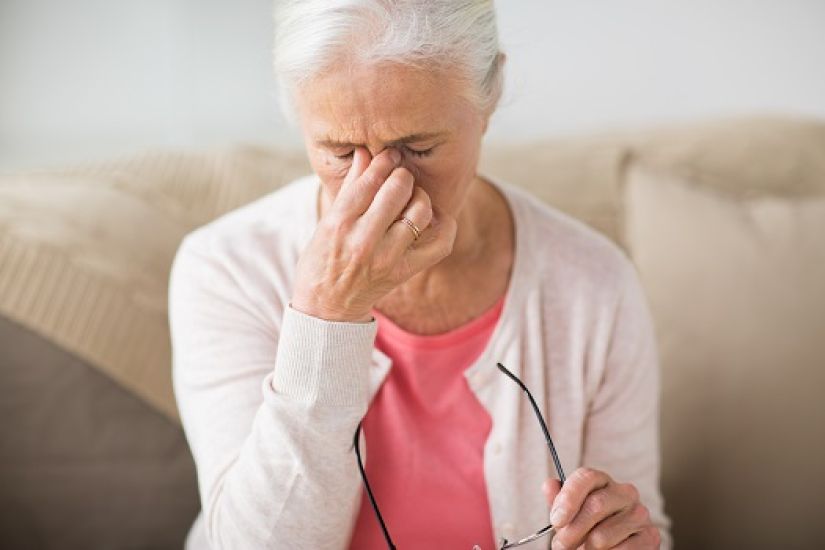
What Causes Diabetes in Ageing Adults?
Each year, a large number of seniors over the age of 60 are diagnosed with diabetes, a condition that could lead to serious health problems as well as death. However, diabetes is a manageable and often preventable condition. Continue reading to learn about diabetes, including how it impacts older adults and ways your ageing loved one can prevent the disease.
Obesity
The most common type of diabetes is type 2. For seniors living with this condition, their bodies either don’t produce enough insulin or fail to use insulin well. Type 2 diabetes typically develops in overweight adults, which is why your parent needs to maintain a healthy weight by following a nutritious diet and avoiding foods high in sugar, which increases glucose levels. Your loved one should also exercise daily and find other healthy methods to cut calories. Staying in good physical shape can prevent obesity, lower the risk of type 2 diabetes, and stave off other conditions that indirectly increase the risk of diabetes.
A professional care worker with training in nutrition can be an outstanding source of support for your loved one. Not every senior has the same care needs, which means they don’t all need the same type of homecare. You can rely on Home Care Assistance to provide individualised care plans to meet your elderly loved one’s unique care needs. Our holistic Balanced Care Method was designed to help seniors focus on healthy lifestyle habits such as eating nutritious foods, exercising regularly, and maintaining strong social ties, and our Cognitive Therapeutics Method offers mentally stimulating activities that can stave off cognitive decline and delay the onset of dementia.
Stress
High levels of anxiety cause the body to release excess glucose into the bloodstream, increasing the odds of diabetes. Each time your loved one fears a specific situation, gets accidentally startled, or feels depressed, his or her liver lets out small amounts of glucose it has stored. In addition, the excessive release of glucose in the brain, nerve cells, and heart prevents the body from functioning normally. The added glucose in the bloodstream also harms insulin production. To stop the rise of stress-related glucose secretion, your loved one needs to manage anxiety by avoiding stressful situations, developing positive management strategies, and increasing daily comfort levels.
Stress is one of many components that can contribute to diminished mental and physical health in seniors. In Sydney, senior home care agencies can be a great boon to seniors. With the help of the care workers at Home Care Assistance, your ageing loved one can lead a happier and healthier life. We offer a revolutionary program called the Balanced Care Method, which encourages seniors to eat nutritious foods, exercise and socialise regularly, and focus on other lifestyle factors that increase life expectancy.
Genetics
Most cases of diabetes are due to environmental factors, but seniors with specific gene mutations are also at risk for developing type 2 diabetes. The genes most commonly associated with this condition are GLUT2, ABCC8, and TCF7L2. Variations in these genes can have an adverse effect on insulin secretion as well as glucose production and regulation. Although the genes don’t guarantee someone will develop diabetes, most people with the condition have one or more of the genetic mutations. Take your loved one to the doctor to determine if he or she has these genes, and encourage him or her to adopt healthy lifestyle choices that lower the risk of diabetes.
Inactivity
Exercise is vital for seniors because it promotes glycemic control and reduces the odds of diabetes. Working out the body can help seniors control blood sugar levels while boosting the heart’s ability to maintain its sensitivity to insulin and manage sugar levels in the bloodstream. Some exercises that help seniors with insulin resistance are swimming, dancing, walking, and yoga.
If you usually help your loved one get proper nutrition and exercise but you need a break now and then, consider having a professional care worker take over for you. Sydney respite care professionals can assist seniors with a wide array of daily tasks, offering family care workers the chance to focus on other personal responsibilities or take a break to prevent burnout. Whether it’s for a few hours a day or a few days a week, respite care is the perfect solution for family carers who are feeling overwhelmed. Reach out to us at Home Care Assistance if you need compassionate, professional care for your loved one. Call one of our dedicated Care Managers today at [hca_phone] to learn about the high quality of our in-home care services.